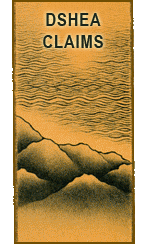DSHEA Tutorial: “Cure” Versus “Support”

Non-Compliant Workaround #2: verbs or terms that describe the function of the formula that suggests the treatment of disease.
For instance, “Shen Ling Bai Zhu San to restore normal colon function” suggests that the colon’s function is in a diseased state and must be restored, and so this statement would be non-compliant. “Shen Ling Bai Zhu San to maintain healthy function of the colon” is okay. “Shen Ling Bai Zhu San to prevent diarrhea” is non-compliant. Treating, curing, preventing or mitigating disease is something that only drugs can do, not dietary supplements.
The actual wording of the DSHEA law permits statements that
characterize the documented mechanism by which a nutrient or dietary ingredient acts to maintain such structure or function.
This point really comes down to allowing certain terms such as
“stimulate,” “maintain,” “support,” “regulate,” or “promote”.
The terms listed immediately above are all allowed, as long as the statements do not suggest disease prevention or treatment. However terms such as
“restore normal” or “correct abnormal” function when the abnormality implies the presence of disease.
are not allowed. An example might be a claim to “restore” normal blood pressure because that abnormality implies hypertension.
If a health maintenance claim implies disease treatment or prevention, it would not be an acceptable structure/function claim. The FDA states:
“maintains healthy lungs in smokers” would imply prevention of
tobacco-related lung cancer and chronic lung disease. “Maintains
healthy lung function,” alone, however, would be an acceptable
structure/function claim.
The FDA also says that
Claims that the product was an “energizer,” a “rejuvenative,” a “revitalizer,” or an “adaptogen.”
are acceptable structure / function buy vicodin es claims.
As for the term “tonic” the FDA:
agrees that “tonic” is not a disease claim. “Tonic” is commonly understood as a general term for anything that refreshes, and, by itself, would not be considered to constitute a disease claim.
So we’re okay to tonify with tonics, but we can’t tonify a deficiency. This really comes down to the FDA’s perception of the common meaning and usage of this word. Of course in modern TCM we apply the term “tonify” to tonic formulas that treat deficiency conditions. Just don’t tell anybody that tonics treat deficiencies because a deficiency is usually a disease, especially when the symptoms are recognizable to health professionals as such.
To review:
Non-compliant actions of formula:
restore normal function
- correct deficiency (however “tonify” is okay)
- sedate excess
- dry damp
- move qi
- astringe intestines
- treat
- cure
- prevent
- diagnose
- improve
- fix
- cure
- heal
Compliant actions of formula:
- maintain
- support
- regulate
- promote
- tonify
- refreshes
Remember, we can say anything that we want anywhere we chose as long as there is no purchase opportunity on the page, any hyperlinked page, or in the immediate physical vicinity of the checkout area in the case of a brick and mortar establishment. Here at gancao.net there are no links to anything for sale in the articles posted here. For this reason, we can claim that certain herbs cure cancer, bring back the dead, or make your penis bigger. We can say anything we want. Its a “free country” right? However if we’re selling something, those words become a sales pitch and all of these DSHEA regulations come in to play.
Next: suggesting a disease claim with the name of the product.
 Last modified: August 14, 2009
Last modified: August 14, 2009  Tags: Claims, DSHEA · Posted in: Claims
Tags: Claims, DSHEA · Posted in: Claims
